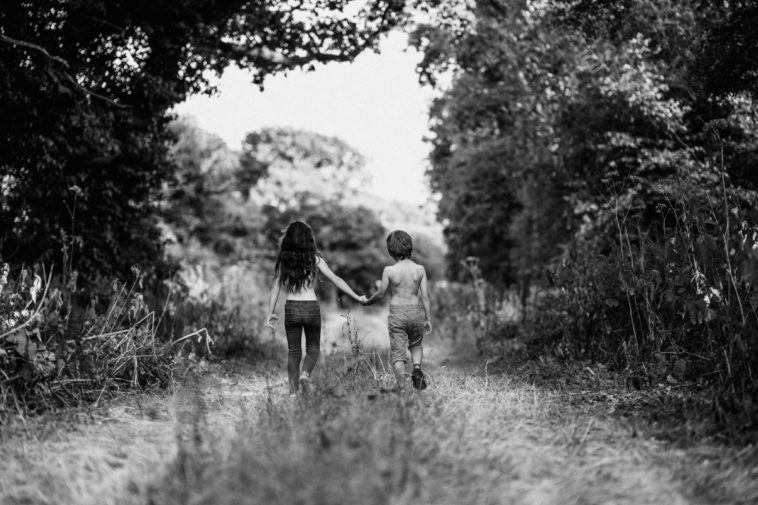h2>Dating : We’re Taught How to be Loveable, Not How to Love
I’ve always wanted a boyfriend. Adolescence was a doe-eyed day-dream; my mind was a screen of idealization, across which vague wishes would flicker: first kisses, long walks, hand brushing hand, bright eyes, nervous smiles. I created these scenarios by swallowing generous spoonfuls of a hearty stew of novels, love songs and — the big one — romantic comedies.
I can boil the plot of these movies down to five sentences: girl encounters new-in-town, unattainable gorgeous boy. Girl weasels her way, via a series of cunning steps concocted by a posse of foxy girlfriends, into boy’s life. Boy finally sees girl, but only as a pal (by this point, it’s been a few months, and he’s dating the prettiest girl in school). Girl undertakes some action (usually involving deceit and a makeover) to make boy fall in love with her. It works. The end.
The moral of the story: although it may be difficult to find and obtain the object of affection, once you’ve found and obtained them, you’ve cleared the hurdle. You’re shootin’ and swishin’. Apply any athletic metaphor you’d like: it’s home runs from here on out.
How to find and obtain? Be pretty. And smart. And funny. And quirky. And cool; “just one of the guys.” Be, in short, loveable.
Once you’re loveable, loving is easy. If you’re with the right person, the love will flow between you unencumbered; it’s merry days till the grave.
Here’s the sticky truth: loving is hard. Loving is a pain in the posterior. Loving is equal parts delicious and terrible, like eating too much of something devastatingly scrumptious, with the end result of stomach cramps and possible diarrhea.
For all the importance that’s placed on romantic love in our cultural narrative, it isn’t presented as a worthy object of inquiry; as something to be approached and discovered with the vigour, attention, and curiosity of a student. Like some other ridiculously crucial aspects of living we’re never taught in school — how to file taxes, for instance, how to have meaningful conversations, or how to open a registered retirement savings plan — we are simply flung into the arena and expected to conquer the bull with the elegance and ease of a life-long matador.
But when you do finally fall in love, just like when you finally have to face tax-filing season head-on, you discover just how laughably unprepared you are for this critical facet of life. One reaction to this realization is to simply leave. This isn’t at all what I thought it would be, we think, as we lope away like hunted gazelles. Another reaction is to fight the emerging truth — that loving another person is very messy — and attempt to maintain perfection anyway, which is a temporary fix, resulting in either a come-to-Jesus or the insidious disintegration of the relationship. Another reaction is to stick with the love; is to realize that yes, I’m not at all cut out for this, but I value it too much to lose it, therefore, I’m going to have to suck it up and learn how to deal.
This, of course, is a tough pill to swallow. Because we were never taught how. The romantic narratives we absorbed up as we grew up didn’t teach us how to love, they taught us how to be loved.
(Is this why we accepted them so instinctively; so completely? Because here, finally, was something easy, here was something that promised to keep on giving, and all that we had to do was just be ourselves, because the right person would love us, no matter what?)
The problem is that loving — truly loving — is just as hard as anything else in these beautiful, sorry lives of ours. Here, like everywhere, we get no respite. Loving involves conquering yourself in favour of the other. It involves constantly challenging your beliefs, judgments, and preconceptions. It involves breaking down the walls of your ego to incorporate another complex individual into the various, ever-changing spheres of your life. It involves letting go of control. It involves uncovering and facing the tangled, unsavoury parts of yourself, and of another person. We’re all human; meaning, we’re all equal parts remarkable and unequivocally idiotic.
These parts of loving — the parts we’re never taught — are the most terrible, beautiful, and ultimately rewarding (if we have the patience, empathy, and vulnerability to work through them) aspects of romantic (and other) relationships.
But we often find that we don’t, in fact, have the persistence required for the messy bits. Perhaps this is because we pour so much of our energy into the upkeep of lovability, into polishing the patina of perfection, into maintaining the idealized shell; so much energy that could be channelled into doing our very best to simply love the other person. Milan Kundera, in one of my favourite quotes of all time, touches on this in The Unbearable Lightness of Being:
“Perhaps the reason we are unable to love is that we yearn to be loved, that is, we demand something (love) from our partner instead of delivering ourselves up to him demand-free, and asking for nothing but his company.”
So, let me 180 the above moral pulled from the countless Hollywood narratives I eagerly absorbed, like a parched sponge: it is, indeed, hard to discover and obtain the object of affection. The hardest part, though, comes when we finally understand and must accept that it takes constant study and practice — self-reflection, self-transcendence, mutual engagement in difficult conversations, vulnerability, the acceptance of complexity and imperfection — if we are to keep this maddening, beautiful, ridiculously precious thing around.
I deeply wish I’d grown up with a more balanced idea of what love really is. I wish that, when the hard moments arose in my relationships, I’d been able to pull from a bank of knowledge, as I was able to pull from a bank of knowledge when presented with a gnarled mathematical equation. Because that is, really, what love is — the most complex equation of all. And I was never given the tools to grapple with it.
I’m not really sure how to fix this problem. But because all my skewed conceptions of love were sourced from a series of idealized romantic narratives, maybe we can start by adding Erich Fromm’s “The Art of Loving” to the high school English syllabus.



